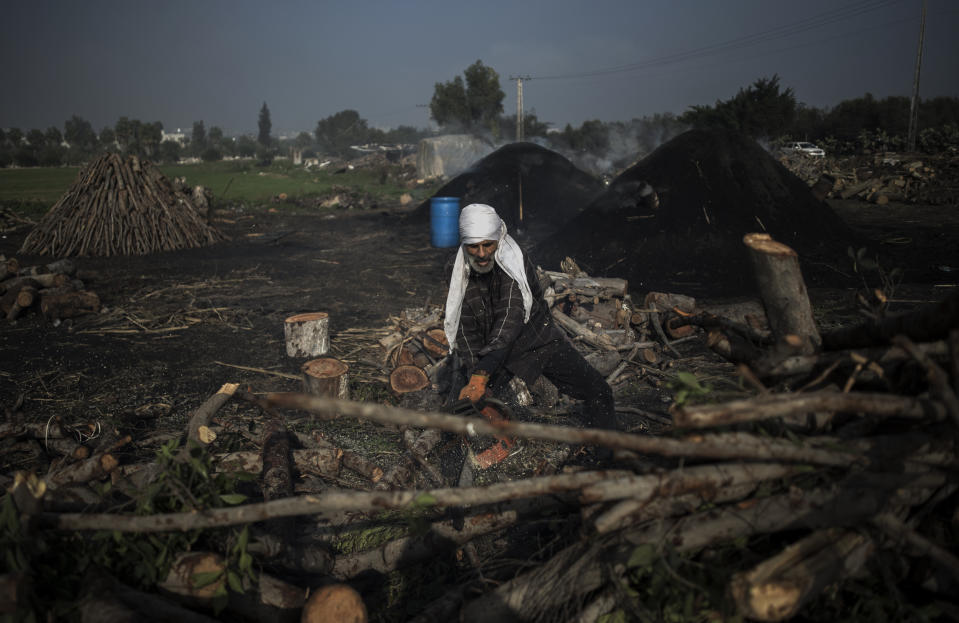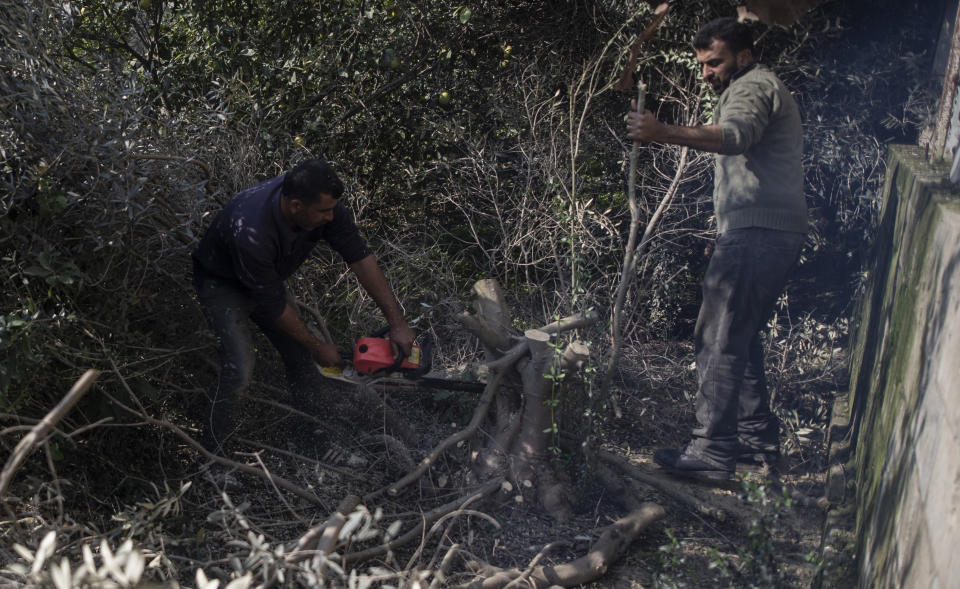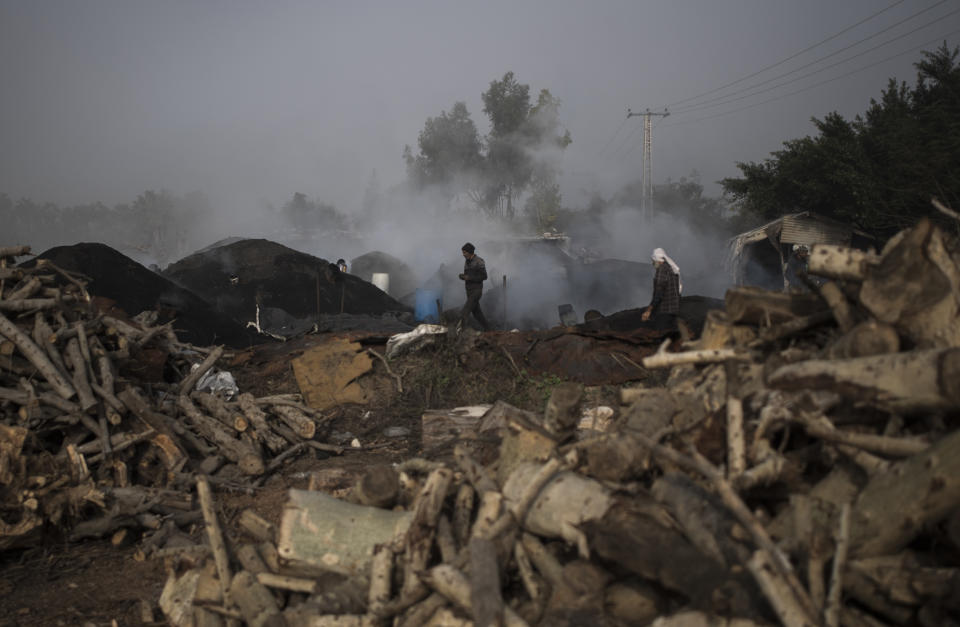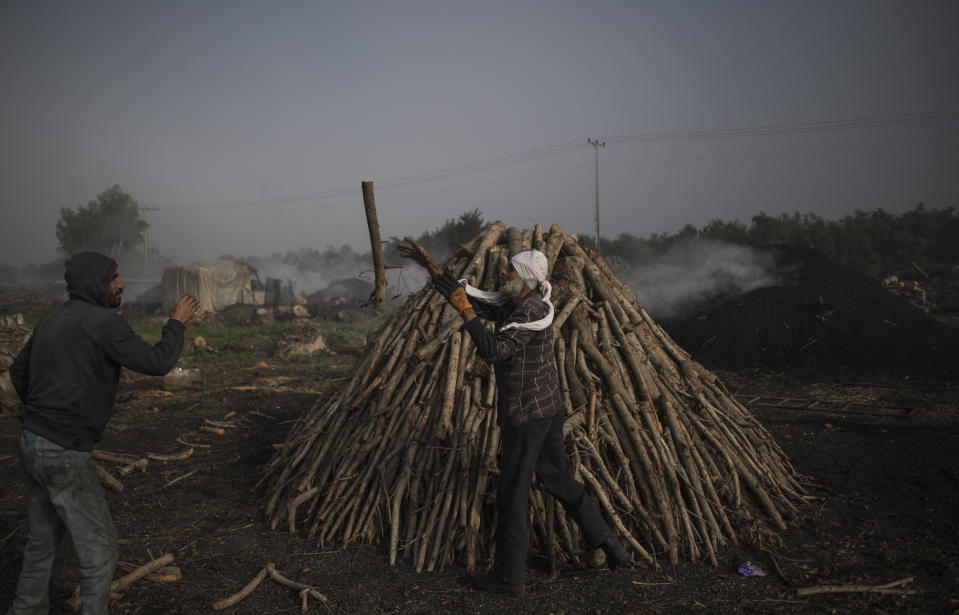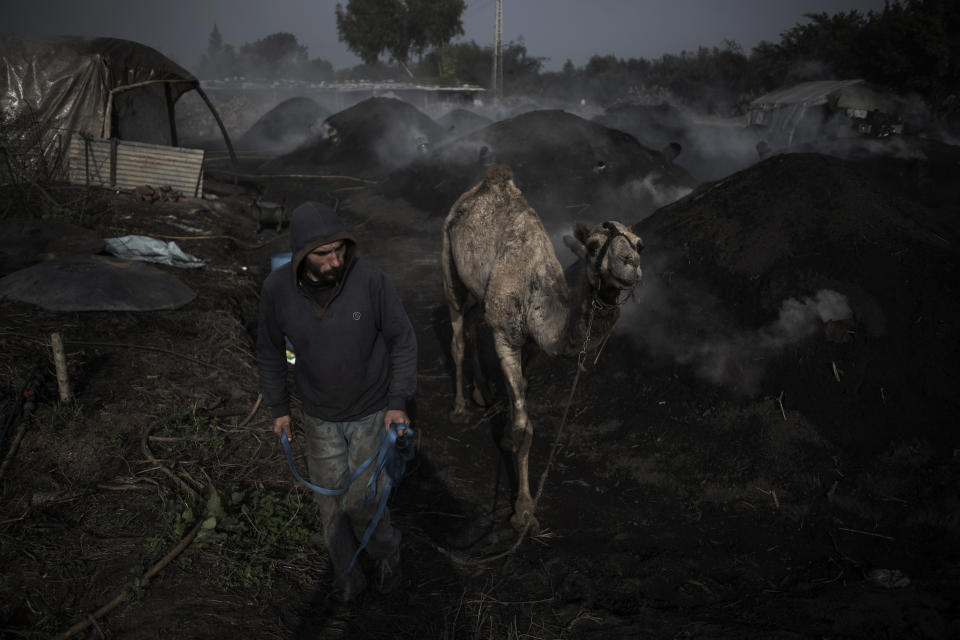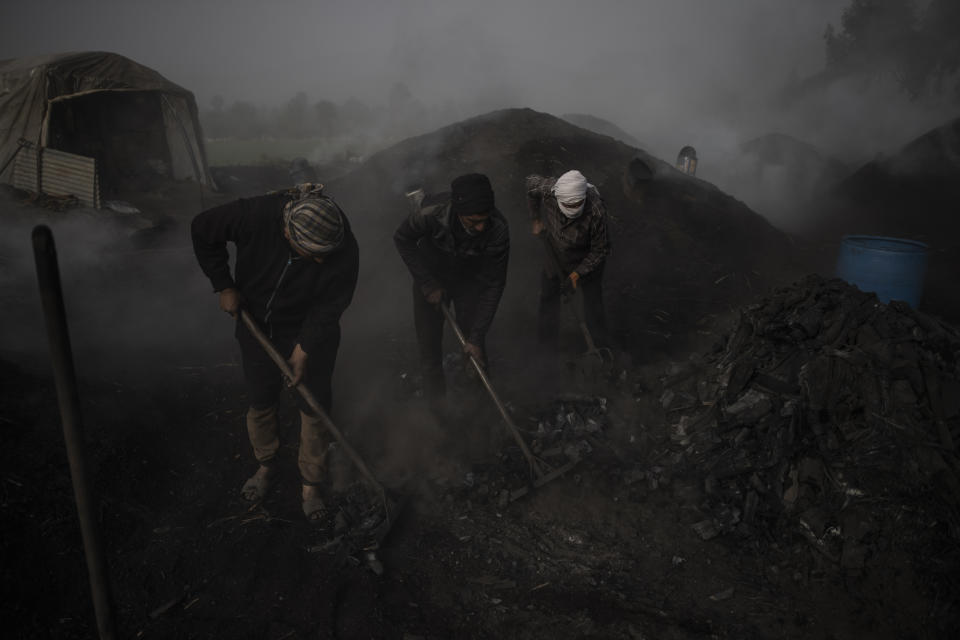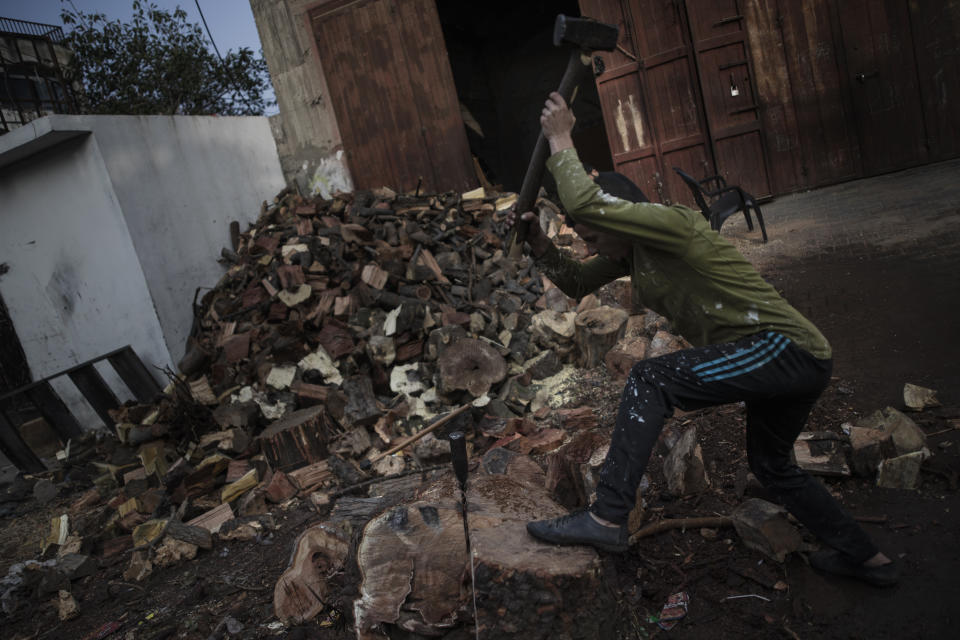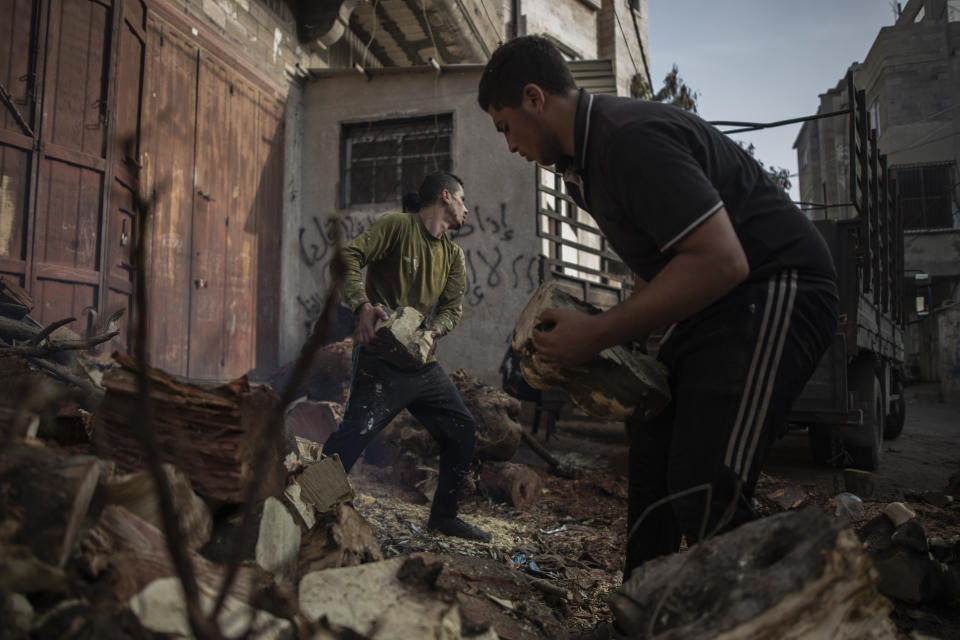Sparse trees, little work for woodcutters in squeezed Gaza
GAZA CITY, Gaza Strip (AP) — With a chainsaw in his car, Ahmed Abdelal tours the Gaza Strip, asking around for people wanting to cut down trees, regrow orchards or make way for construction.
One of the few remaining woodcutters in the Palestinian territory, Abdelal, who learned woodcutting from his father, is struggling to scratch out a living in a traditional job that is less and less in demand.
Job opportunities are rare in this Palestinian enclave wedged between Israel, Egypt and the Mediterranean Sea, and so are green spaces. Rapid population growth — more than 2 million people are crammed in a 360-square-kilometer (140 square mile) strip — comes at the expense of arable land.
Israel maintains a 300-meter (330-yard) wide buffer zone along its frontier with Gaza. At the the height of the second Palestinian uprising in the early 2000s, its military bulldozers leveled large swaths of citrus groves in the border areas.
In more recent years, Gaza has suffered under a blockade imposed by Israel and Egypt after the Islamic militant Hamas group seized control of the territory from the Palestinian Authority in 2007. Israel says the restrictions are needed to prevent Hamas from upgrading its weapons. The Palestinian Authority, or PA, holds sway in the West Bank.
The blockade and the rift between Hamas and the PA have weakened Gaza's energy sector. As a result, residents are put on a rotating electricity schedule of eight-hours on, followed by an eight-hour blackout.
Here, woodcutters like Abdelal find an opportunity.
The unreliability of the power supply drives up the demand for wood in winter. So Abdelal and other Gaza woodcutters look to expand their clientele from the traditional buyers of logs, residents of rural areas who bake bread on woodfire ovens and tribal councils who keep the Arabic coffee pots warm near a woodfire.
Among Abdelal’s favorite clients are small kitchens that cook food in ovens dug under the ground. In these pits, the wood is burnt to coal before chicken, lamb shoulders and shanks are tossed in and left to cook for hours. The cooking technique is getting popular.
The olive and citrus wood logs also go to a burning site in east Gaza City where they are turned into charcoal.
Abu Ashraf al-Hattab, who has been a charcoal burner for decades, says the business has declined in recent years because the local supplies of wood have shrunk and people have turned to cheaper, imported charcoal.
In his gift shop, Muhanad Ahmed wanted to offer environmentally friendly items and drop the excessive amount of plastic that's seen on the shelves of other shops, he says. So, he buys the logs and shapes them into wood sculptures.
Abdelal says that as long as he can find customers, he will continue. “Cutting the wood is an old profession for us, and despite development and modernity, it still exists,” he said.
